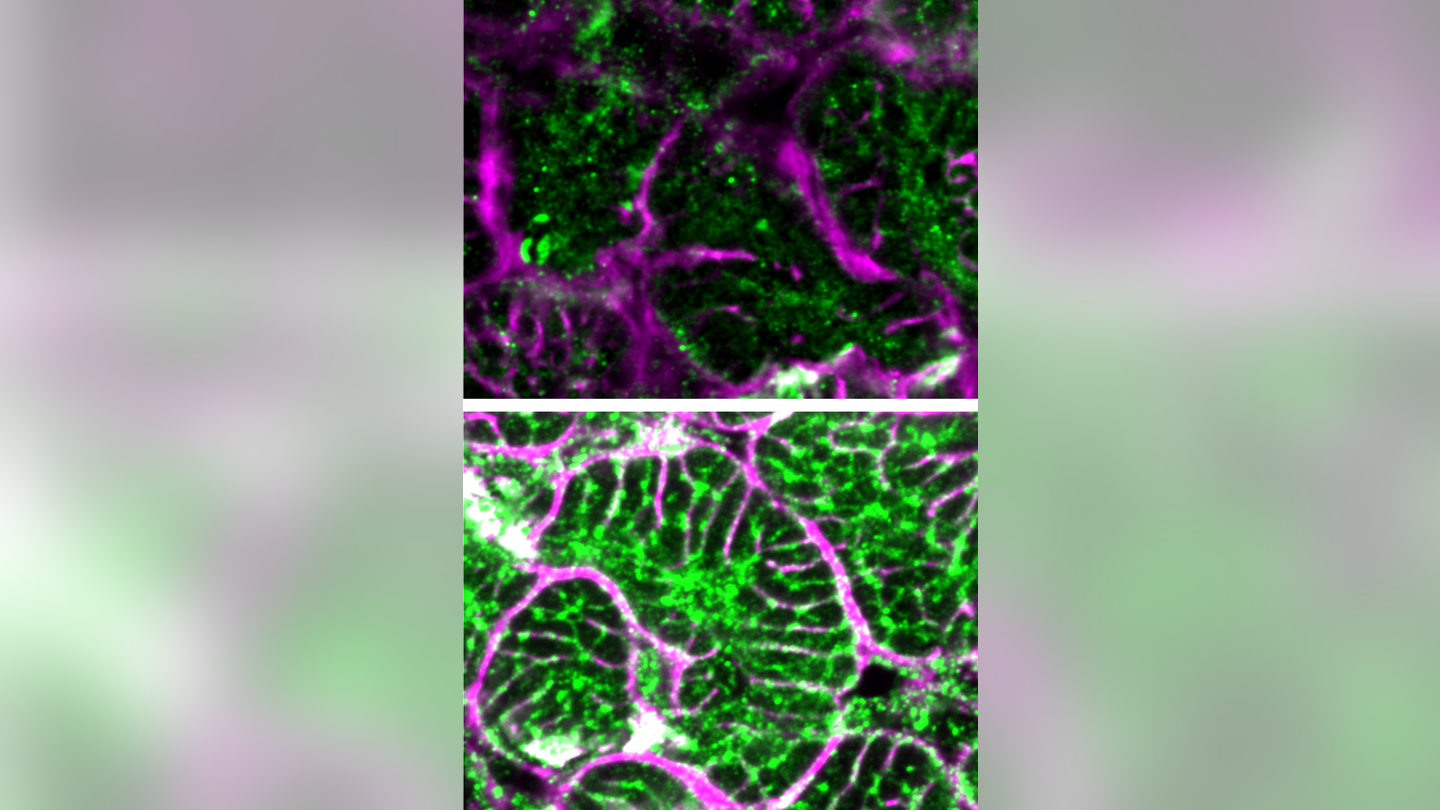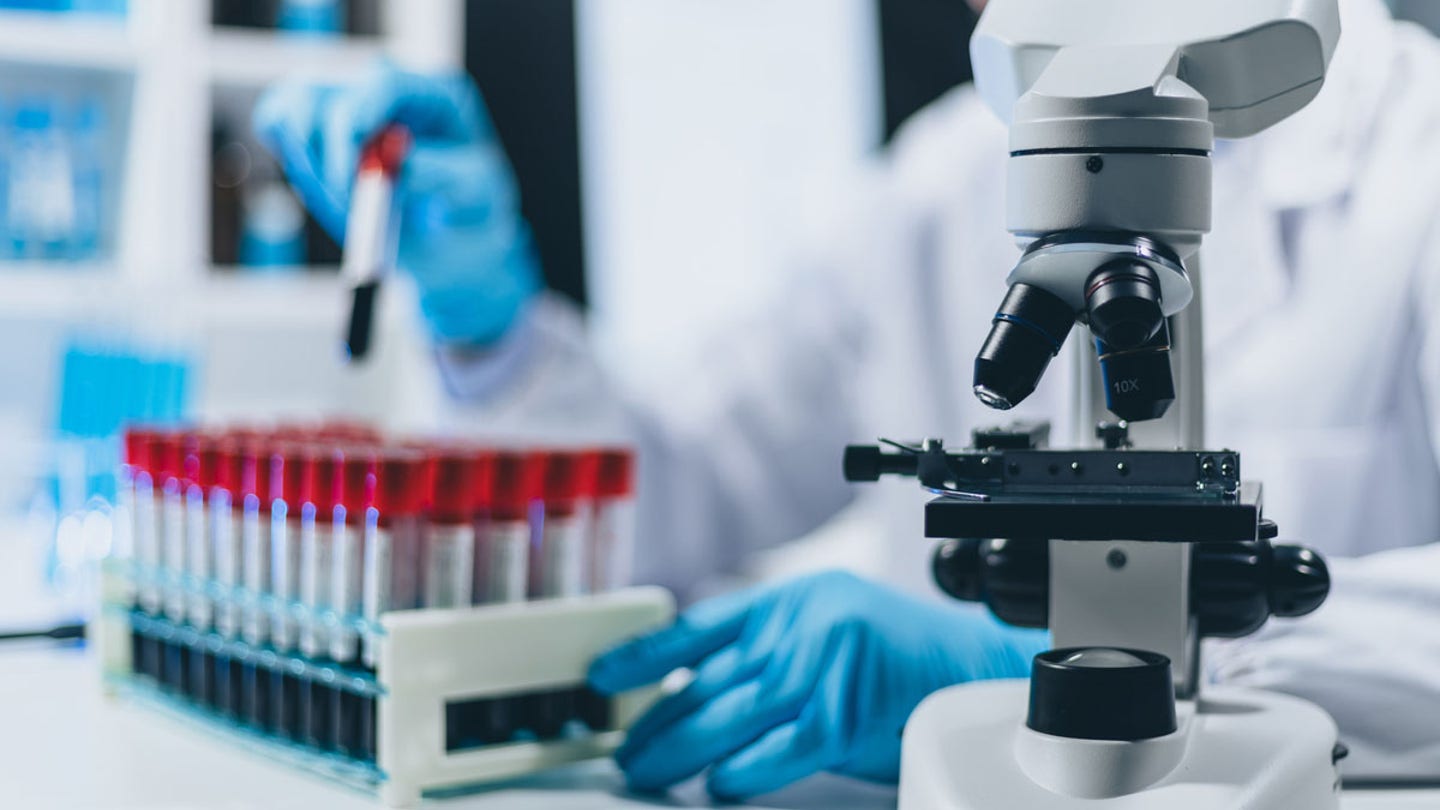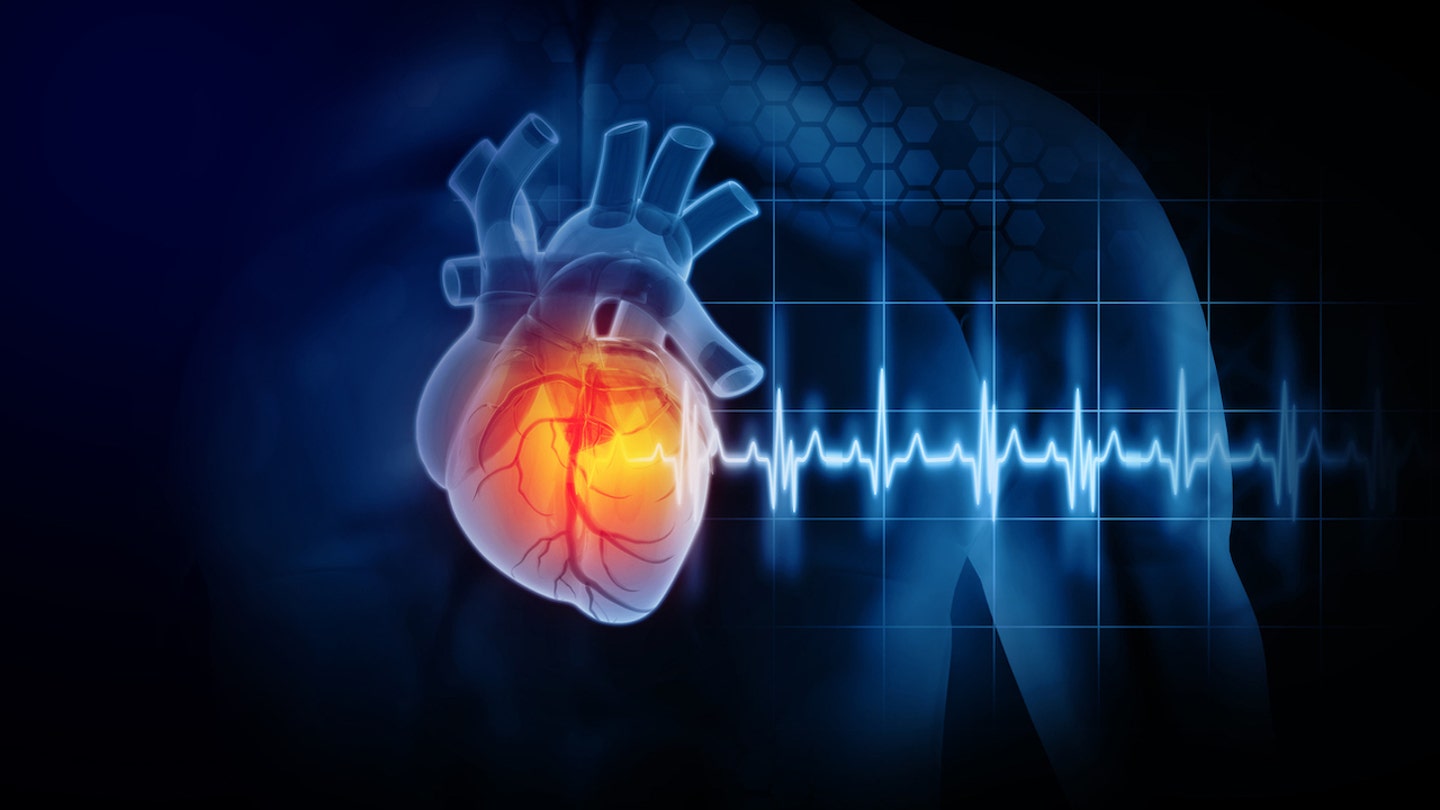Heart failure has historically been irreversible, but the outcome of a new study suggests that could someday change.
At the University of Utah, scientists used a new gene therapy that was shown to reverse the effects of heart failure in a large animal study.
In the study, pigs with heart failure were found to have low levels of cardiac bridging integrator 1 (cBIN1), a critical heart protein.
BRAIN BLEED SENT JAMIE FOXX INTO A STROKE — WHAT TO KNOW ABOUT THE DANGEROUS CONDITION
The scientists injected a harmless virus into the pigs’ bloodstreams to carry the cBIN1 gene into their heart cells, according to a university press release.
The pigs survived for the six-month duration of the study, while they would have been expected to die from heart failure without the gene therapy.
Senior study co-authors Robin Shaw, MD, PhD (left) and TingTing Hong, MD, PhD (right) are pictured in the lab. (Charlie Ehlert / University of Utah Health.)
In what the researchers called an “unprecedented recovery of cardiac function,” the IV injection appeared to improve heart function by increasing the amount of blood it can pump, which “dramatically improves survival.”
The pigs’ hearts also appeared to be “less dilated and less thinned out” after the therapy, “closer in appearance to that of non-failing hearts.”
‘I’M A HEART SURGEON, HERE’S WHAT YOU SHOULD KNOW ABOUT EGGS, YOUR HEART AND YOUR HEALTH’
While previous attempts to treat heart failure improved function by just 5% to 10%, the gene therapy used in the new study resulted in 30% improvement, according to the researchers.
The study, which was funded by the National Institutes of Health, was published on Tuesday in the journal npj Regenerative Medicine.

Microscope images of failing heart cells (top) and heart cells that received gene therapy (bottom). Cell boundaries, labeled in magenta, are more organized after gene therapy, and the level of cBIN1 protein (green) is higher. (Hong Lab)
“Even though the animals are still facing stress on the heart to induce heart failure, in animals that got the treatment, we saw recovery of heart function and that the heart also stabilizes or shrinks,” said TingTing Hong, MD, PhD, associate professor of pharmacology and toxicology at the University of Utah, in the release.
“We call this reverse remodeling. It’s going back to what the normal heart should look like.”
“A possible new therapy to cure heart failure is on the way,” Hong told Fox News Digital in a statement.
“A possible new therapy to cure heart failure is on the way.”
The researchers were surprised to find that the gene therapy worked so well in large animals at such a low dose, Hong added.
Co-senior author Robin Shaw, MD, PhD, director of the Nora Eccles Harrison Cardiovascular Research and Training Institute at the University of Utah, said the “unprecedented” study ushers in a “new paradigm” for heart failure treatments.
JUST 5 MINUTES OF EXERCISE COULD REDUCE HIGH BLOOD PRESSURE, STUDY FINDS
“Given our treatment efficacy, the complex multi-organ syndrome of heart failure can be reduced to a treatable disease of failing heart muscle,” he told Fox News Digital via email.
“The toxicity of gene therapy increases with dose, so our low dose suggests that our gene therapy approach will be safe for patients.”

While gene therapy has historically been used for rare diseases, the study results suggest that it could also be an effective approach for “acquired disease,” a researcher said. (iStock)
While gene therapy has historically been used for rare diseases, the study results suggest that it could also be an effective approach for “acquired disease,” according to Shaw.
The study did have some limitations, the researchers acknowledged.
“Dose escalation and toxicology studies are still needed for the therapy to move to the next step [toward FDA approval],” Hong noted.
CLICK HERE TO GET THE FOX NEWS APP
It is also uncertain whether the gene therapy will work for people who have obtained a natural immunity to the virus that carries the therapy, the researchers said.
The toxicology study is currently underway, and the team plans to start human clinical trials in the fall of 2025, Hong said.
Cardiologists weigh in
Dr. Jasdeep Dalawari, interventional cardiologist and regional chief medical officer at VitalSolution, an Ingenovis Health Company based in Ohio, was not involved in the research but shared his reaction to the findings.
“Gene therapy, precision medicine and personalized health care is the future.”
“Research in the animal phase is always interesting, but the application to human test subjects is necessary in terms of understanding if this approach would have the same effect in humans,” he told Fox News Digital.

While previous attempts to treat heart failure improved function by just 5% to 10%, the gene therapy used in the new study resulted in 30% improvement, according to the researchers. (iStock)
“That said, there are many genetic modifications happening in different diseases, like cystic fibrosis and muscular dystrophy, that are looking at a similar intervention – injecting healthy genes in the hopes of finding cures,” he went on.
“Gene therapy, precision medicine and personalized health care is the future, and I look forward to learning more about this.”
CLICK HERE TO SIGN UP FOR OUR HEALTH NEWSLETTER
Dr. Johanna Contreras, advanced heart failure and transplant cardiologist at the Mount Sinai Fuster Heart Hospital in New York City, noted that conventional pharmacological interventions can help to alleviate cardiac stress and “systemic congestion,” but “for the most part, they do not address the pathogenic remodeling of failing heart muscle.”

About 6.7 million adults in the U.S. have heart failure, statistics show. (iStock)
“Gene therapy has emerged as a new modality that could interfere or modify the expression of several proteins, thus it could alter the pathologic remodeling of the heart muscle that exists in heart failure,” Contreras, who also was not involved in the study, told Fox News Digital.
For more Health articles, visit www.foxnews.com/health
Contreras reiterated that human trials are needed to determine whether this therapy will be effective outside animal models and to identify any “downstream effects.”
“I will look forward to learning more and eventually learning if this could one day be applied to humans with heart failure.”
